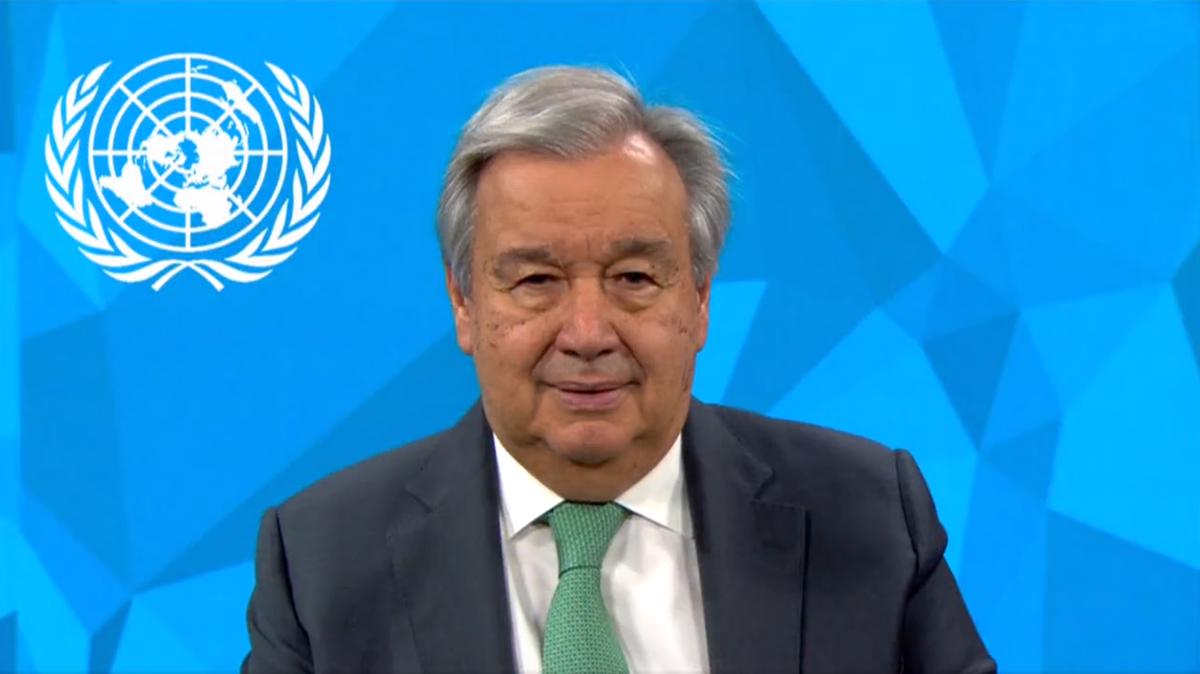MEPC 80: UN boss urges immediate climate action from shipping regulators
UN secretary general António Guterres says decisions made at the IMO this week can help save us from climate catastrophe.
 PHOTO: UN secretary general António Guterres addressing the IMO this week. @UN_News_Centre via Twitter
PHOTO: UN secretary general António Guterres addressing the IMO this week. @UN_News_Centre via Twitter
Shipping accounts for about 3% of the world’s total emissions, Guterres points out, and it will require an immense effort from shipping and other sectors to decarbonise.
Maritime regulators have important decisions to make this week. Member states to the International Maritime Organisation’s (IMO) Marine Environment Protection Committee (MEPC) are convening in London to revise the global greenhouse gas (GHG) strategy towards the middle of the decade.
“Science tells us that it is still possible to limit the global temperature rise to 1.5C. But it requires an immense and immediate global effort,” Guterres says.
To keep the 1.5C goal alive, maritime emissions have to be net zero by 2050 “at the latest”, Guterres declares. Having a fair shot at reaching a mid-century target will require ambitious, science-based interim targets for 2030. Absolute GHG emissions from ships have to be trimmed, and green fuels uptake has to be ramped up. The whole value chain must be accounted for, he says, as a lifecycle approach to measuring emissions can provide the industry and its investors with more clarity and stimulate action and investments.
Setting GHG emission reduction targets is not enough, Guterres says, urging IMO member states to develop technical and economic policies and regulations that will help make these targets attainable. Low- and zero-carbon fuels can for instance be made more competitive with oil-based marine fuels by putting a price on carbon. Funds generated from this tax can go towards supporting developing countries in their transitions and make the global transition more equitable.
IMO member states are expected to adopt a revised GHG strategy on Friday 7 July. Opinion has been split on whether to replace the current 50% GHG reduction target for 2050 with a net zero target, on whether there should be checkpoint targets for 2030 and 2040 on the road to 2050, and if so, how ambitious these targets should be.
Anything less than a net zero by 2050 target is widely considered to be incompatible with shipping shouldering its share of the burden in the global effort towards reaching the Paris Agreement goal of limiting global warming to less than 1.5C of pre-industrial levels.
By Erik Hoffmann
Please get in touch with comments or additional info to news@engine.online





